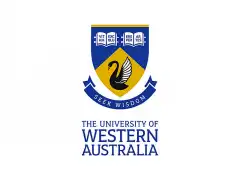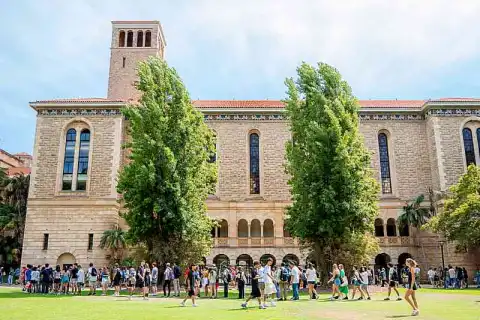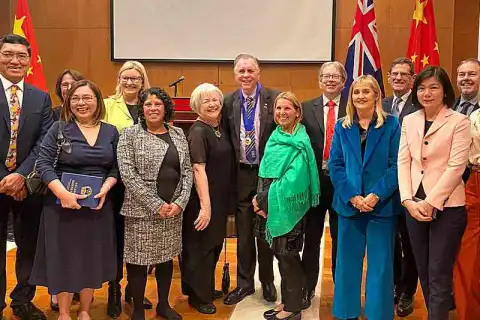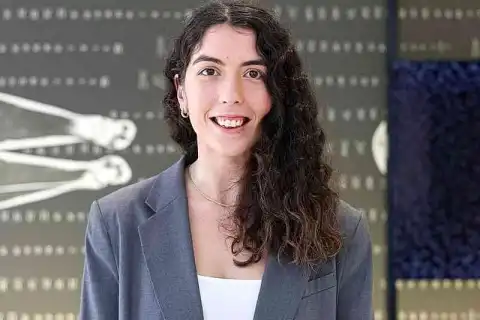Master of Environmental Science
- 2 years
- Duration
- 52,300 AUD/year
- Price
- Rolling admission
- Start
- Rolling admission
- Deadline
- Master
- Degree
- Campus
- Format
- Perth / Australia
- Location
Program description
In addition to studying environmental policy and management techniques, the highly interdisciplinary course gives students a thorough understanding of environmental processes. Students acquire critical skills in lab and field methodologies, remote sensing, GIS, and data analysis and interpretation throughout the course. Crucially, you will develop into a creative thinker capable of evaluating cutting-edge research in your field of expertise critically and combining it with your understanding of policy and emerging technology to find answers that will guarantee the sustainability of our environment for the long run.
Program structure
Core (take all units (12 points):
- ENVT4421 Fundamentals of Environmental Management (6)
- ENVT4422 Research Methods in Agricultural and Environmental Science (6)
Option (for students in course by coursework only take 12 points):
- PARL5599 WA Parliamentary Research Program (6)
- SCIE5004 Professional Skills in Science (6)
- SCIE5005 Science in Practice (6)
- SVLG5001 McCusker Centre for Citizenship Internship (6)
Option (for student in course by coursework and dissertation only, take all units (24 points):
- SCIE5571 Dissertation Part 1 (6)
- SCIE5572 Dissertation Part 2 (6)
- SCIE5573 Dissertation Part 3 (6)
- SCIE5574 Dissertation Part 4 (6)
Specialisation
- Catchments and Water specialisation
- Environmental Economics specialisation
- Environmental Management specialisation
- Environmental Rehabilitation specialisation
- Marine and Coastal Management specialisation
- Sensing and Spatial Data Science specialisation
Price
- Tuition fee — 52,300 AUD per year.
Requirements for applicants
To be considered for admission to this course an applicant must have
- a bachelor's degree, or equivalent as recognised by UWA;
- the equivalent of a UWA weighted average mark of at least 50 per cent;
- met the prerequisite for the chosen specialisation
- For the Environmental Management or Environmental Economics specialisations an applicant must have completed prior studies at a tertiary level in either science, engineering, economics, natural resource management, urban and regional planning, or policy studies; or a related cognate discipline, as recognised by UWA
- For the Catchments and Water or Environmental Rehabilitation or Sensing and Data Science specialisations an applicant must have completed prior studies at a tertiary level in either earth, environmental, engineering, biological or physical sciences; or a related cognate discipline, as recognised by UWA
- For the Marine and Coastal specialisation an applicant must have completed prior studies at a tertiary level in either marine, environmental, engineering, biological or physical sciences; or a related cognate discipline, as recognised by UWA
English competency
- Minimum overall IELTS score of 6.5, with no band less than 6.0.
For more information on requirements, please contact your Edumapple manager.
About the university

With a founding purpose to "advance the prosperity and welfare of communities," the University of the State was established in 1911 and opened its doors in 1913 to a small student body of 184. More than 28,000 students hailing from 115 different countries are now enrolled.
In the realms of education, research, and student success, UWA has been at the forefront of groundbreaking innovations since its inception. However, a university is more than just a place to get a degree and do research.
Throughout Western Australia, the country, and the globe, UWA has played an important role in advancing knowledge, culture, and the economy for over a century.
As the sole institution in Western Australia to be ranked in the top 100 globally, UWA has earned praise for its creative curricula, strong ties to local businesses, dedication to the student experience, and groundbreaking research.
Choosing to study at UWA means becoming a member of a community that has a reputation for leading good change, both locally and globally. You will also become part of a network of dedicated and innovative leaders who are determined to make a difference.





